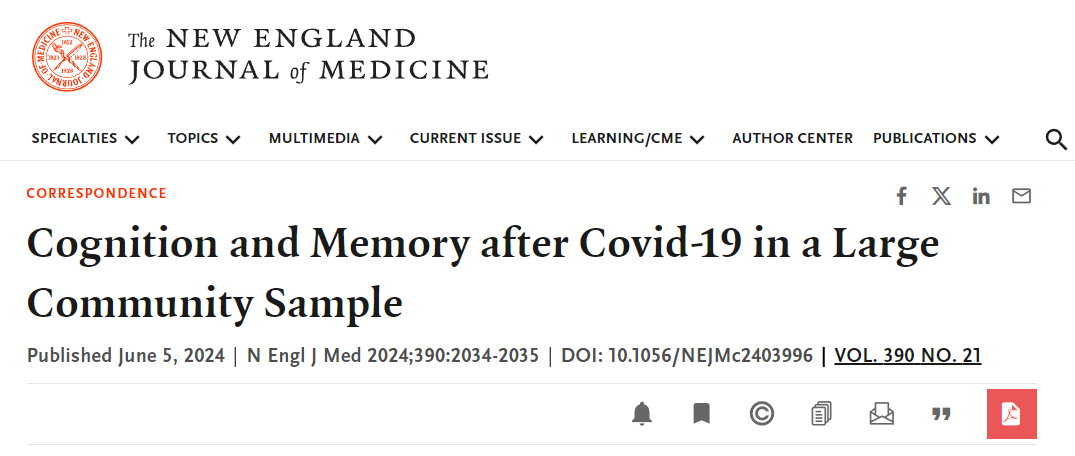On February 28, 2024, The New England Journal of Medicine published a research report on Cognition and Memory after Covid-19 in a Large Community Sample. In the study, 800,000 adults in England were invited to complete an online assessment of cognitive function. Multiple regression analysis showed that the global cognitive scores of patients with persistent symptoms after rehabilitation in Covid-19 were significantly lower than those who were not infected with Covid-19. Participants infected with the original virus or B.1.1.7 variant virus had larger cognitive deficits, while those infected with later variant virus (such as B.1.1.529 variant) had relatively smaller cognitive deficits. The cognitive deficits of hospitalized patients were significantly larger than those who had not be hospitalized, especially those in intensive care unit. Although short-term Covid-19 infection was still associated with mild cognitive deficits, the cognitive deficits of patients with persistent symptoms were more significant. In addition, the study also found that with the progress of the epidemic, the cognitive deficits of patients infected with the later virus variant were alleviated.
Xu Lei and Li Yi from Department of Radiation Oncology and Huang Xin from Department of Radiology of the First Affiliated Hospital (FAH) of Xi'an Jiaotong University (XJTU) conducted in-depth discussion on this research and provided important comments. They proposed that the authors randomly selected their study cohort from a community sample. This approach could introduce bias because the most severely affected patients might not have been in the community when the survey was conducted. They also recommended that more equitable and objective results might be obtained if it were possible to select samples from the positive NAATs at the hospital. In addition, they also mentioned that a previous study showed that Covid-19 was associated with an increased risk of longitudinal cognitive decline on the basis of a cohort of Covid-19 survivors who were 60 years of age or older in China. Hence, they suggest stratification analysis involving patients of different ages. Finally, in countries that were disproportionately affected by Covid-19, such as China and the United States, the methods for choosing participants are important to ensure that study results translate to improved public health.
On June 5, 2024, Xu Lei, Li Yi and Huang Xin published a Correspondence for "Cognition and Memory after Covid-19 in a Large Community Sample" in The New England Journal of Medicine (IF: 158.5), which was the first time that XJTU Health Science Center published a Correspondence in this journal.
Full-text link: https://www.nejm.org/doi/full/10.1056/NEJMc2403996
